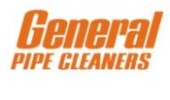
Results of a final screening assessment released by Environment Canada and Health Canada in February reported that exposure from Fuel Oil No. 2 residential tank leaks is not a concern for the health of the general population. The report states that “the limited duration of potential exposure, the low acute toxicity of the fuel and existing leak mitigation measures.”
This comes as welcome news for the Canadian Oil Heat Association (COHA). But according to president Stephen Koch, it is not all that surprising.
“We have been working on (the premise) that it is not dangerous to humans for quite a while,” Koch said in an interview. “And I think that we’re glad Health Canada went through this exercise and came to the same conclusion.”
In the screening assessment, potential harm to the environment was also explored. The assessment indicates that on average, there are currently 12 spills per year across Canada with sufficient volume to be of concern to the marine and freshwater environment. Based on that finding and additional info, it was also concluded that “Fuel Oil No. 2 is entering or may enter the environment at levels that constitute a danger to the environment.”
However, Koch outlined key initiatives that COHA and its advisory council have developed to reduce any existing or potential impact on the environment. In addition, he emphasized that there could be environmental impact with any type of fuel-based product.
“Natural gas, propane, even electrical power – based on what’s being used to generate electricity – has some type of impact on the environment when we use these types of fuels to heat and motorize our communities,” said Koch.
The advisory council, which is composed of stakeholders, insurance companies, brokers, remediators, consumers and regulators, was created last year. It has been engaging with and making recommendations to Environment Canada regarding any environmental impact, according to Koch.
Now completed, Phase One of the advisory council’s agenda focused on developing six key initiatives: expanding COHA’s GreenTECH program; improving consumer understanding of a system’s proper operation and to highlight the importance of yearly equipment maintenance; obtaining universal adoption of B-139 SERIES-15 installation code for oil-burning equipment; creating understanding of the problems and risk associated with unauthorized discharges by developing a website that allows for collected information to be tabulated and synthesized, but also, ensures consumer privacy and negates litigation issues filed with insurance companies; reducing mitigation-response time to unauthorized discharges; and eliminating spill-remediation conflicts of interest.
The next step is to create implementation teams for each of the initiatives, with the key being that personnel understand the logistics of incorporating the recommendations into everyday activity.




